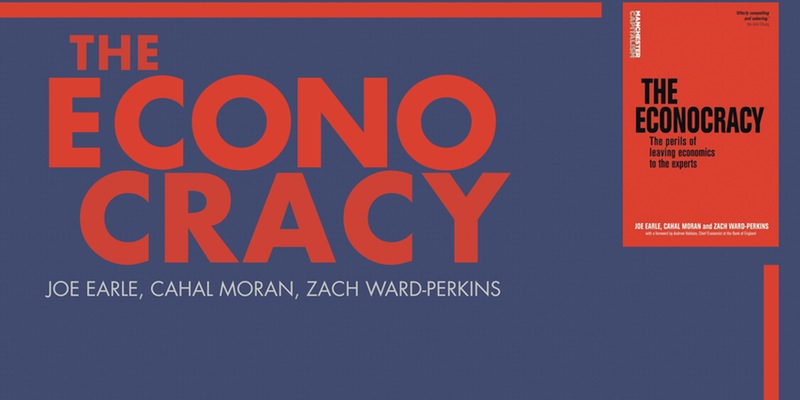
"Today's neoclassical economist is an emperor with no clothes who's fooled us all long enough."
Photo: transitionvoice.com
I knew I had seen something good, when I noted the revolt of the students of economics at Manchester University against the hypocrisy, arrogance, and the irrelevance of what they were being taught by their out of touch lecturers, divorced from the real world and real everyday life and values.
This is how in 2013 I commended their timely and valuable action:
“What wonderfully good news! Once again, another group of brave students of economics at a university have risen against the “dismal science” and the madness of the neo-clasical economics, its ways and its teachings.”
Now, three of their founding members, Joe Earle, Cahal Moran and Zach Ward-Perkins – have set out in full their case for the reform of academic economics and society’s relation with economics more generally, in a recent book, The Econocracy: The perils of leaving economics to experts.

Photo credit: RETEACHING ECONOMICS
“The Econocracy makes three big arguments. First, economics has shoved its way into all aspects of our public life. Flick through any newspaper and you’ll find it is not enough for mental illness to cause suffering, or for people to enjoy paintings: both must have a specific cost or benefit to GDP. It is as if Gradgrind had set up a boutique consultancy, offering mandatory but spurious quantification for any passing cause.
“Second, the economics being pushed is narrow and of recent invention. It sees the economy “as a distinct system that follows a particular, often mechanical logic” and believes this “can be managed using a scientific criteria”. It would not be recognised by Keynes or Marx or Adam Smith.
“In the 1930s, economists began describing the economy as a unitary entity. For decades, Treasury officials produced forecasts in English. That changed only in 1961, when they moved to formal equations and reams of numbers. By the end of the 1970s, 99 organisations were generating projections for the UK economy. Forecasting had become a numerical alchemy: turning base human assumptions and frailty into the marketable gold of rigorous-seeming science.
“By making their discipline all-pervasive, and pretending it is the physics of social science, economists have turned much of our democracy into a no-go zone for the public. This is the authors’ ultimate charge: “We live in a nation divided between a minority who feel they own the language of economics and a majority who don’t.”
“The most devastating evidence in this book concerns what goes into making an economist. The authors analysed 174 economics modules for seven Russell Group universities, making this the most comprehensive curriculum review I know of. Focusing on the exams that undergraduates were asked to prepare for, they found a heavy reliance on multiple choice. The vast bulk of the questions asked students either to describe a model or theory, or to show how economic events could be explained by them. Rarely were they asked to assess the models themselves. In essence, they were being tested on whether they had memorised the catechism and could recite it under invigilation.
“Critical thinking is not necessary to win a top economics degree. Of the core economics papers, only 8% of marks awarded asked for any critical evaluation or independent judgment. At one university, the authors write, 97% of all compulsory modules “entailed no form of critical or independent thinking whatsoever”.
“The high priests of economics still hold power, but they no longer have legitimacy. In proving so resistant to serious reform, they have sent the message to a sceptical public that they are unreformable. Which makes The Econocracy a case study for the question we should all be asking since the crash: how, after all that, have the elites – in Westminster, in the City, in economics – stayed in charge?”-Continue to read
The Econocracy is published by Manchester University. To order a copy click HERE
